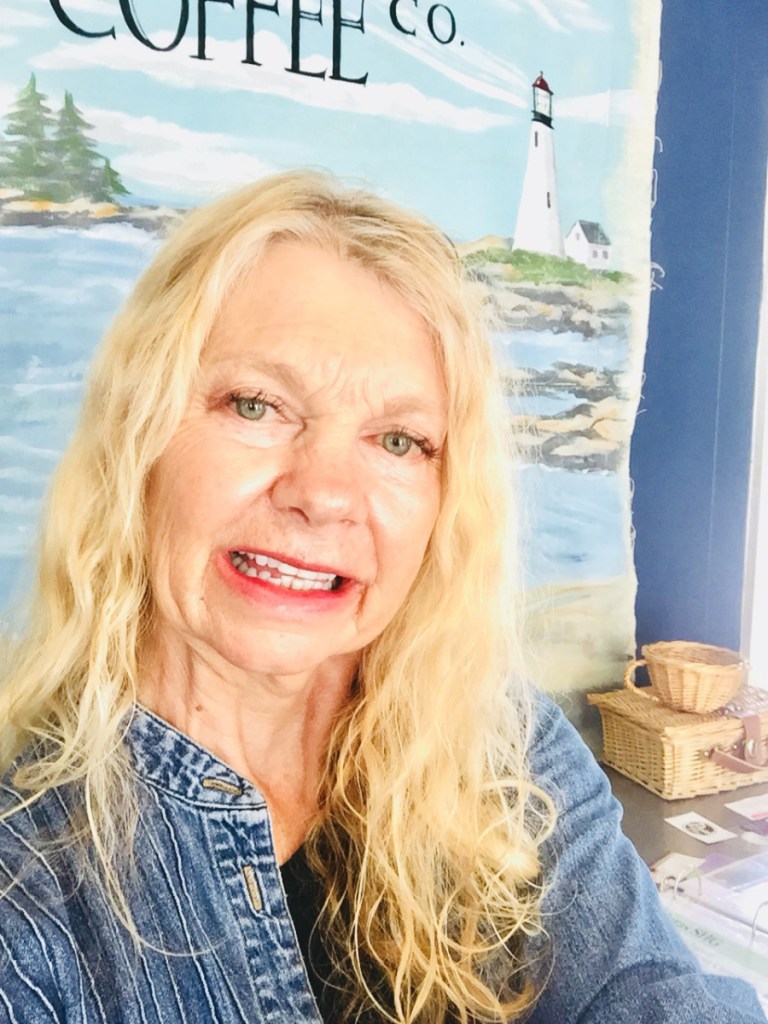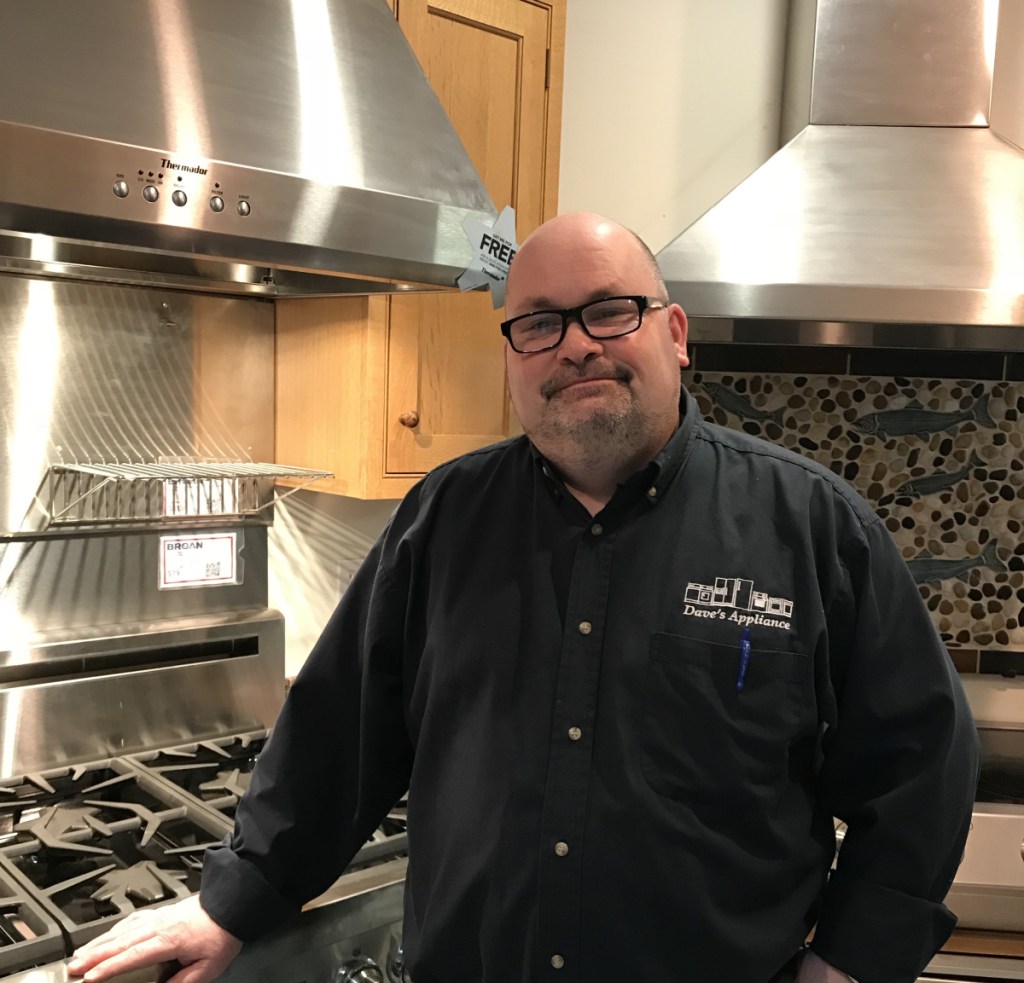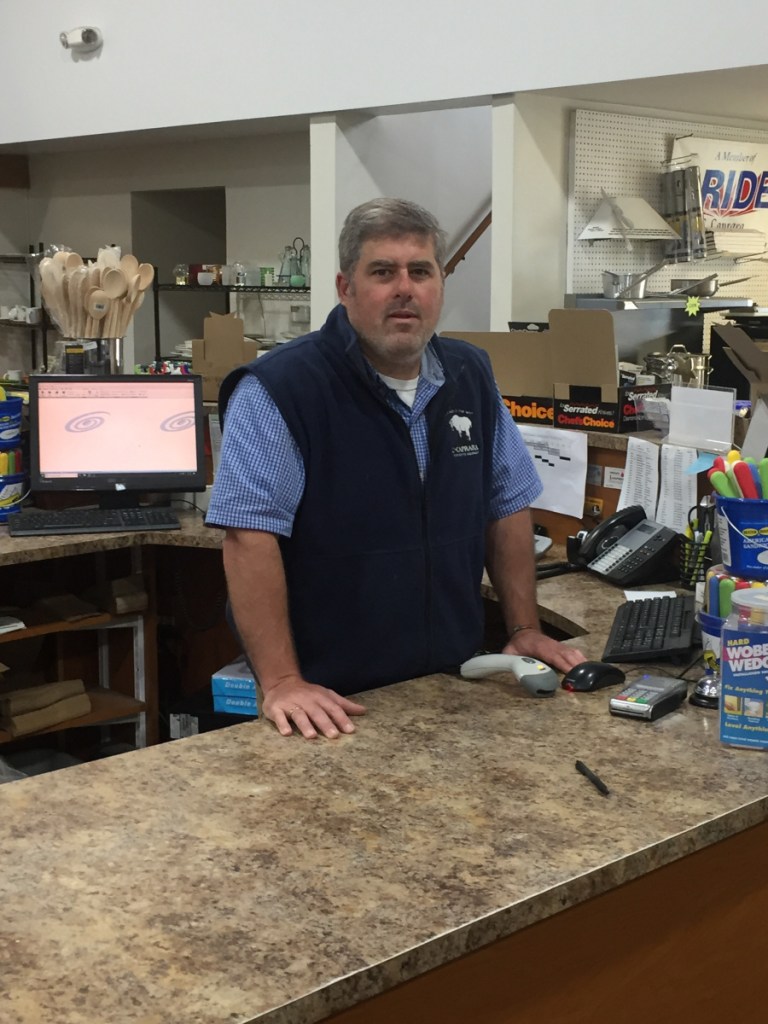Pati Carlson, owner, Shipwreck Coffee Co., Farmingdale
The vice president of OPI nail polish has a sign over her desk that says, “It’s only nail polish.” So, that being said, “It’s only coffee.” However, I feel that when you are in a small business, “no” is not an option. That is actually something I learned from my daughter and her husband, who own three businesses. That’s my philosophy that I try to follow when working with customers. My daughter and her husband have had a business for many years, and I have watched them break their backs to please their customers. And so, in my own business model, I kind of went to that same type of a philosophy and developed “‘No’ is not an option.” If it’s within my power to do and I have the resources to do it or the product, we can get it done.
Brian Ketchan, co-owner and treasurer, Dave’s Appliance, Winthrop
Just protecting your customer and customer base. That philosophy from the top is trying to keep the customers happy at all times.
I don’t know if it was advice. Because this is a family business, I watched my father go above and beyond a lot and care for people. The world was smaller then, and life was a little simpler. My father was the best example of what customer service was. The store was open six days a week and he would work seven days a week. He would do a service call and come home with a bag of zucchini or a puppy. He would try to be loyal to the people who were loyal to him.
He is the Dave in Dave’s Appliance. He retired in 1999 and passed away in 2013.
Carl Caprara, president, C. Caprara Food Service Equipment, Winthrop
It’s from my dad (Victor Caprara, who founded the business with his wife Carol), it’s two things.
One: Don’t worry about the dollars, worry about the pennies when it comes to spending for the business.
And two: The golden rule — treat everyone as you want to be treated, and that goes for our customers and our employees.
Seth Noonkester, general manager, Titcomb Mountain, Farmington
To keep moving forward, with everything being so dependent on weather and it being extremely variable.
I remember a documentary I watched in school about local mountains. It was called “1000 Feet & Below.” There was a manager from Mt. Abram who said in this industry, you have to accept you are going to dump $100,000 into snow-making and the next day watch it get poured on and washed away. And you will just have to eat it, and start over and do the exact same thing. That really stuck to me. I don’t think many companies or industries need to take on a challenge like that. How can you prepare for that? Whatever happens, you just keep moving.
Kris Reynolds, president, Reynolds Custom Woodworks, Winslow
Two things. I used to be a teacher at Erskine Academy. At a parent-teacher conference, there was a parent who was a cabinet maker and I said was struggling with the costing thing. He scribbled something down and gave it to his son, who brought it to me. He told me what I should be charging and it was almost double. You have to know your costs and charge accordingly.
I learned a while ago, from my father, that you can’t take every job. I have avoided some big-time problems knowing that.
Well, three things. Not to bite of more than you can chew, financially. I own my equipment and the building. I can keep my overhead costs low.
Send questions/comments to the editors.




